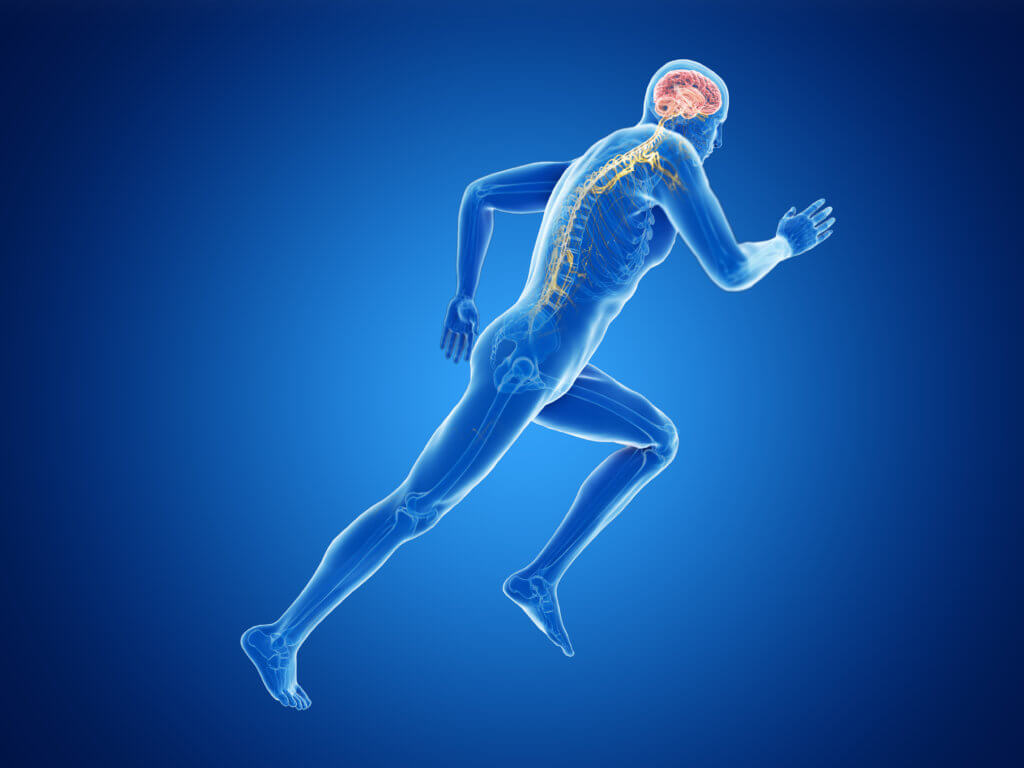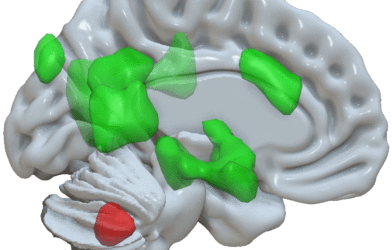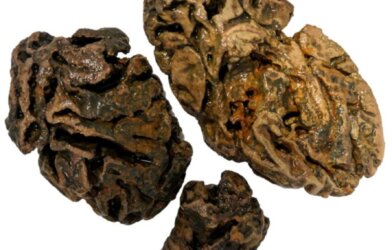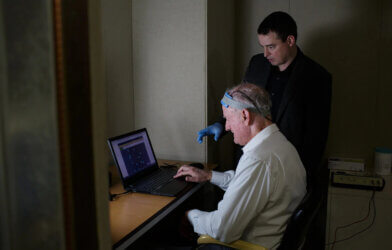Study reveals that in older adults, even 20 minutes of moderate physical activity can protect against cognitive decline
It’s widely-known that exercise has a positive effect on the body and metabolic health. Less-studied is how exercise affects the brain, particularly where in the brain the effects are seen. Researchers from the German Center for Neurodegenerative Diseases have conducted a new study addressing this. They reveal how the intensity of exercise plays a vital role in brain volume, particularly in areas linked to cognitive decline.
The team used data from a previous work by the same organization called the Rhineland Study, which is a large study that analyzed physical activity from 2,550 volunteers ages 30 to 94 years. Participants wore an accelerometer on their upper thigh for seven days to track exercise. To track brain activity, magnetic resonance imaging (MRI) was used, and the scans generated information on brain volume and thickness of the cortex. To specifically characterize where in the brain physical activity benefited most, the researchers searched several databases for genes that are active in the brain areas investigated.
Results show that physical activity plays an invaluable role in almost all of the brain regions, and a trend was also discovered. Study authors say that with more intense physical activity, the larger the brain regions actually were in volume and thickness of cortex.
However in elderly people, they found the sharpest increase in volume across the board with only moderate levels of activity. This may mean that even 15-20 minutes of exercise may be protective against neurodegeneration, which is most prevalent in this demographic.
Through the gene search, the researchers found additional key information to help understand the brain’s response to exercise.
“Mainly, these were genes that are essential for the functioning of mitochondria, the power plants of our cells,” says Fabienne Fox, neuroscientist and lead author of the study. This means that there are high amounts of mitochondria in these areas, which the team thinks makes sense. The mitochondria provide the body with energy and require lots of oxygen to do so, which may explain why certain regions with these genes benefit to such an extent from physical activity.
The researchers believe that this work may provide valuable insight into neurodegeneration prevention measures in younger people, since their findings suggest that diseases like Alzheimer’s and Parkinson’s can be prevented in part due to exercise.
Their work may also offer improved frameworks and clinical recommendations given to the elderly who suffer from these diseases to help them better protect their brain from further deterioration. “With our study, we were able to characterize brain regions that benefit from physical activity to an unprecedented level of detail,” says Ahmad Aziz, head of the research group “Population and Clinical Neuroepidemiology” at DZNE. “We hope our results will provide important leads for further research.”
This study is published in the journal Neurology.













Then wire so many athletes so stupid?
Nice job with the misspelling who stupid now?
*who’s
Nice grammar, Mr. Christian. “Who” should be “Who’s “. Unless you wish to dispense with the possessive case, of course.
Their not to stupid!
Mark, I feel bad pointing out that it is not the possessive case. It’s a contraction. Let me get back to doing burpees.
Did you notice it was Christian replying to Christian?
Too funny… Christian was afraid nobody would catch his joke so he replied to himself and the grammar police came to the rescue to give Christian a “violation”
“Wire”? Head back to third grade, or, maybe get a workout in?
Sad
Does this mean that as long as I lift till I scream I’ll stay a genius?
What correlation is there between this and Alzheimer’s?
This explains why Arnold Schwarzenegger is such a genius? Just kidding, Schwarzenegger is a direct counterexample to the claim being made.
haha. I regularly tell my husband how I am getting smarter!
Many of the contact sports may have multitudes of mini traumatic brain injuries. Like boxing. Or those who are gifted in athletics may not be so gifted in intellectual areas, or some of the other areas of intelligence.
LOL – must have visited the Onion by mistake
SO, Arnold Schwarzenegger would be up in the genius cattegory? Looks like not many of our politicians are getting enough physical exercise…
So, the “muscle-bound moron” and the “dumb gym jock” are mythical creatures after all? Hard to believe, I’ve encountered so many of them.
The article is about healthy brain and how avoid its againg and Alzheimer. 20 minutes of exercise will help you with that but not with increse yours IQ unfortunately
99% of those gym rats do exercise only in their 20s, just to impress girls.
Over 30 most of them drops the gym, get fat, and open the door for every diseases that you can find in the book.
Brain size and “strength” are not indicators of intelligence, so I say so what?
We die when God says so. Why go out with a muscle cramp, when you can go drunk and dozing off?
Herschel Walker proves this theory quite wrong. Try again.
There referencing high cardio exercise , like running, not weight lifting.
They are!
I have been doing morning exercise for the last forty years and confirm an improved mental capacity- seems to be accelerating
85 years old, just got a US patent, and written a one hundred page script for first three episodes of a tv series a month ago
(Incidentally keep my weight around 160)
Trouble is -close friends seem to be dying at an alarming rate!!